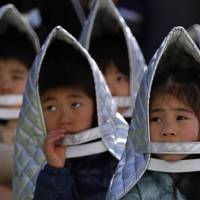In response to the nuclear disaster at the Fukushima No. 1 power plant, 16 countries have taken steps to strengthen safety regulations pertaining to atomic power generation, according to a report released by the U.S. government Tuesday.
The 16 countries, three of which have not yet begun operating nuclear power plants, "are taking steps to improve safety with a focus on considering previously unimagined accident scenarios," the U.S. Government Accountability Office said in the report.
The report also recommended that the U.S. government work more closely with the International Atomic Energy Agency to urge each of the 16 countries to further strengthen safety procedures.
The report said Japan has "fundamentally restructured its nuclear regulatory framework" and noted that countries including the United States, Russia, Canada and Belgium are "now planning for accident scenarios that could involve multiple reactors at a single plant."
Countries are also focusing on new requirements for backup electric generators to protect against the kind of large-scale external power outages that caused the meltdown crisis in Fukushima, the report said.
Additionally, China, Sweden and Vietnam have strengthened their nuclear regulatory bodies.
The report also noted that six countries have developed systems to remotely collect data from their power plants and automatically transmit it to their nuclear regulatory agency and outside experts.
On the issue of U.S. safety regulations, the report recommended that the U.S. Nuclear Regulatory Commission move quickly to decide whether it will upgrade automated systems that would allow power plants to continue transmitting critical data in the event of an emergency.
Approximately 30 countries around the world are currently operating nuclear power plants.
Tuesday marked the third anniversary of the earthquake and tsunami that destroyed a large part of the Tohoku region's coast and sparked the Fukushima nuclear crisis.




